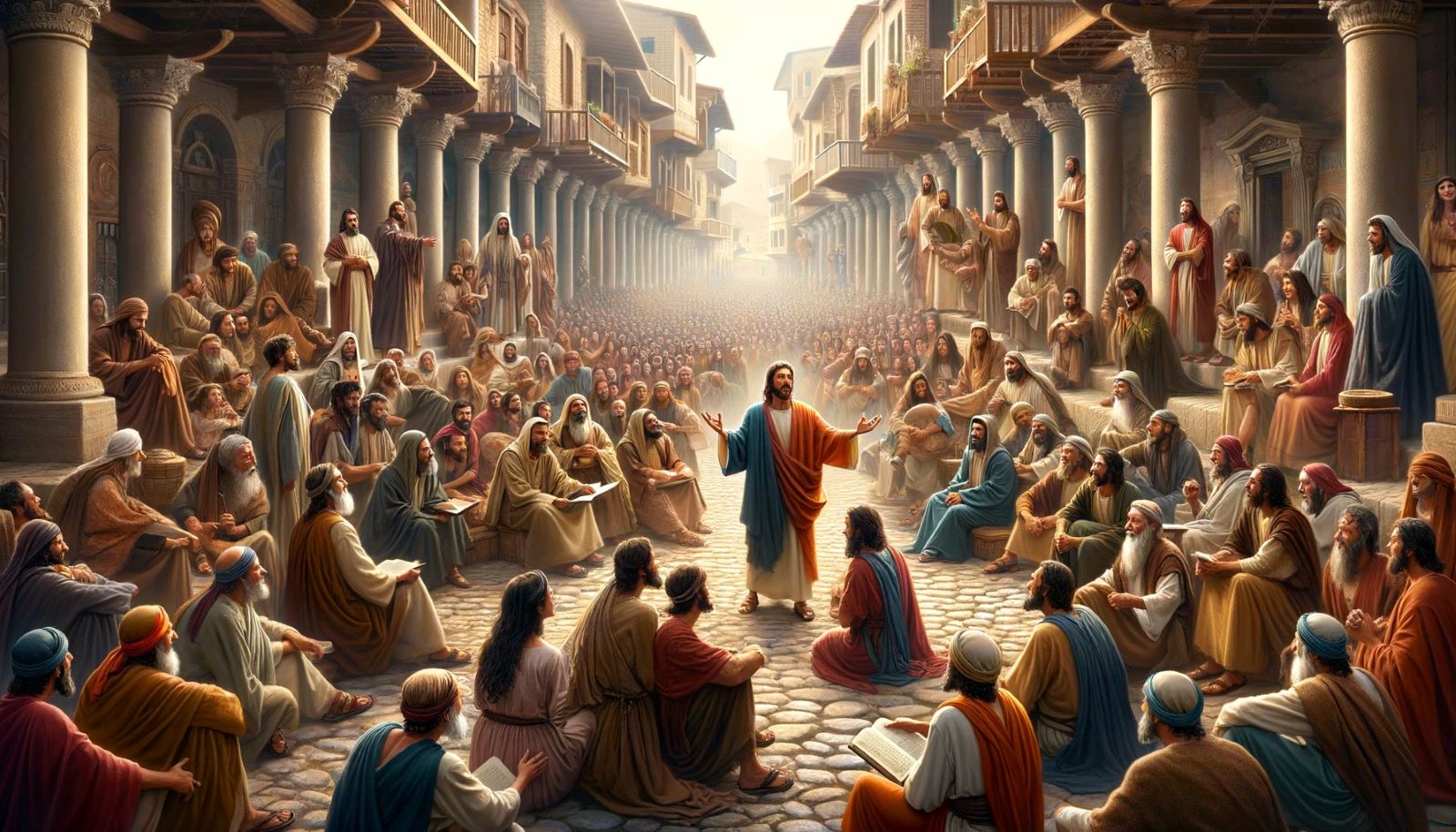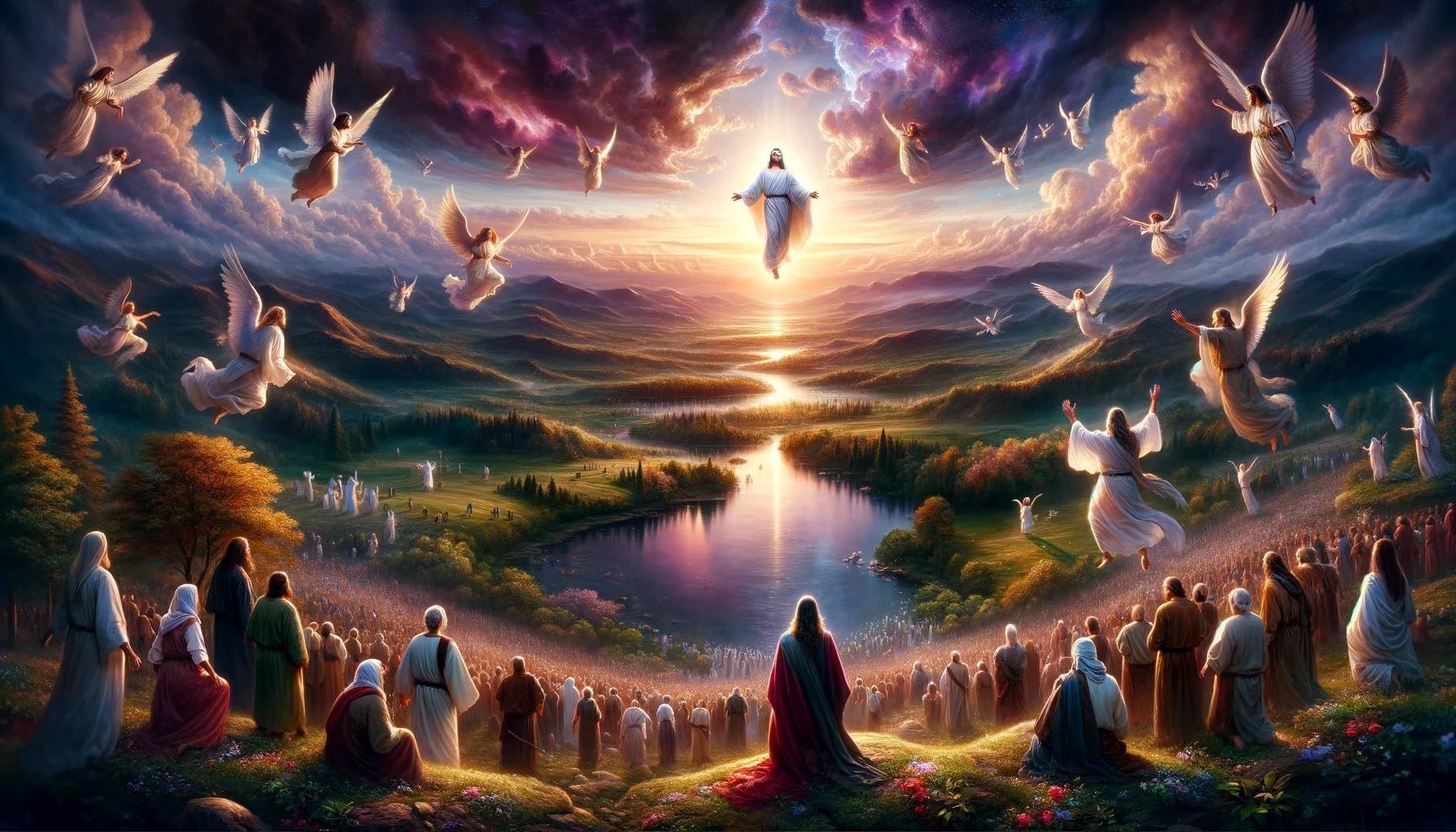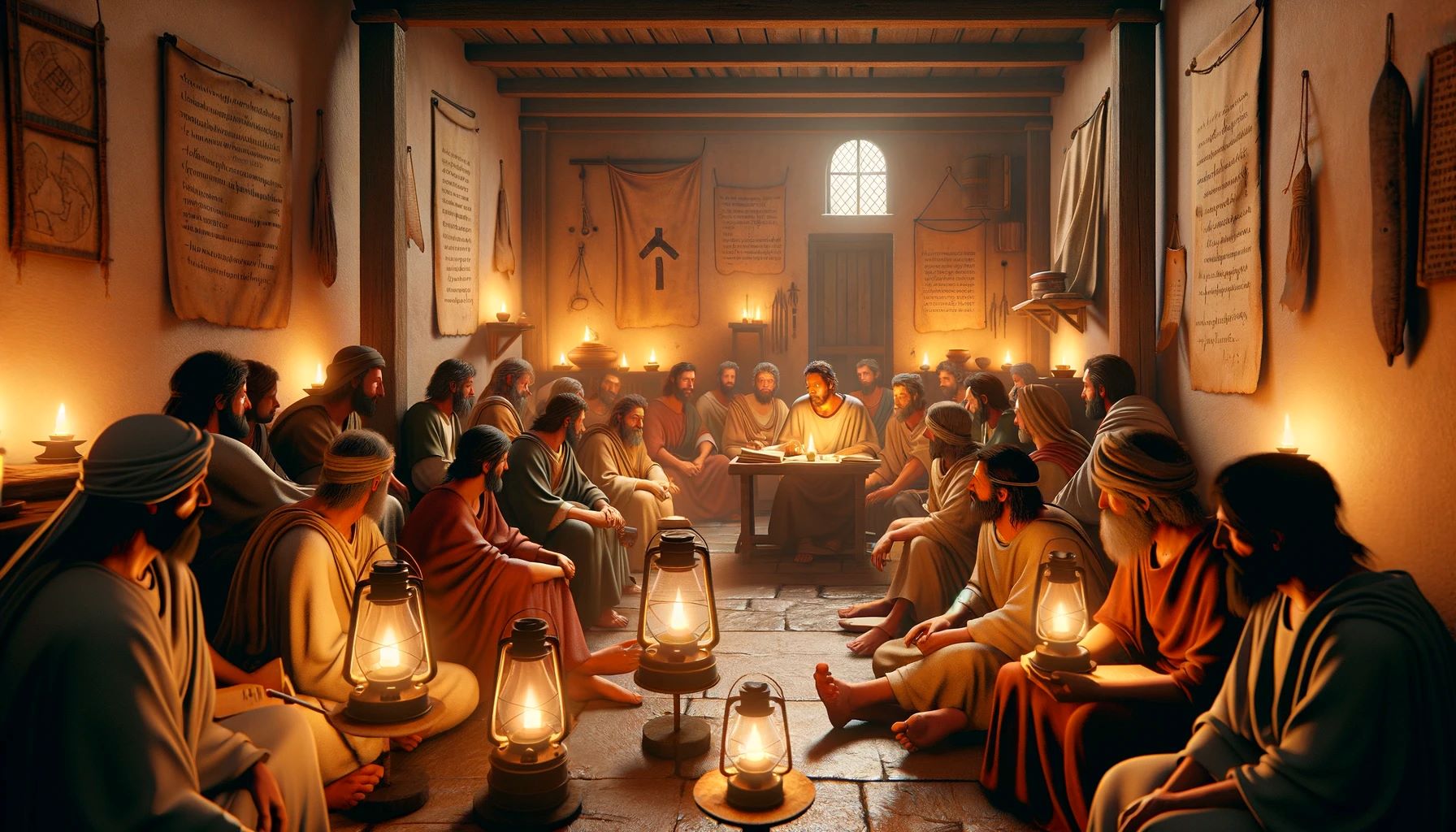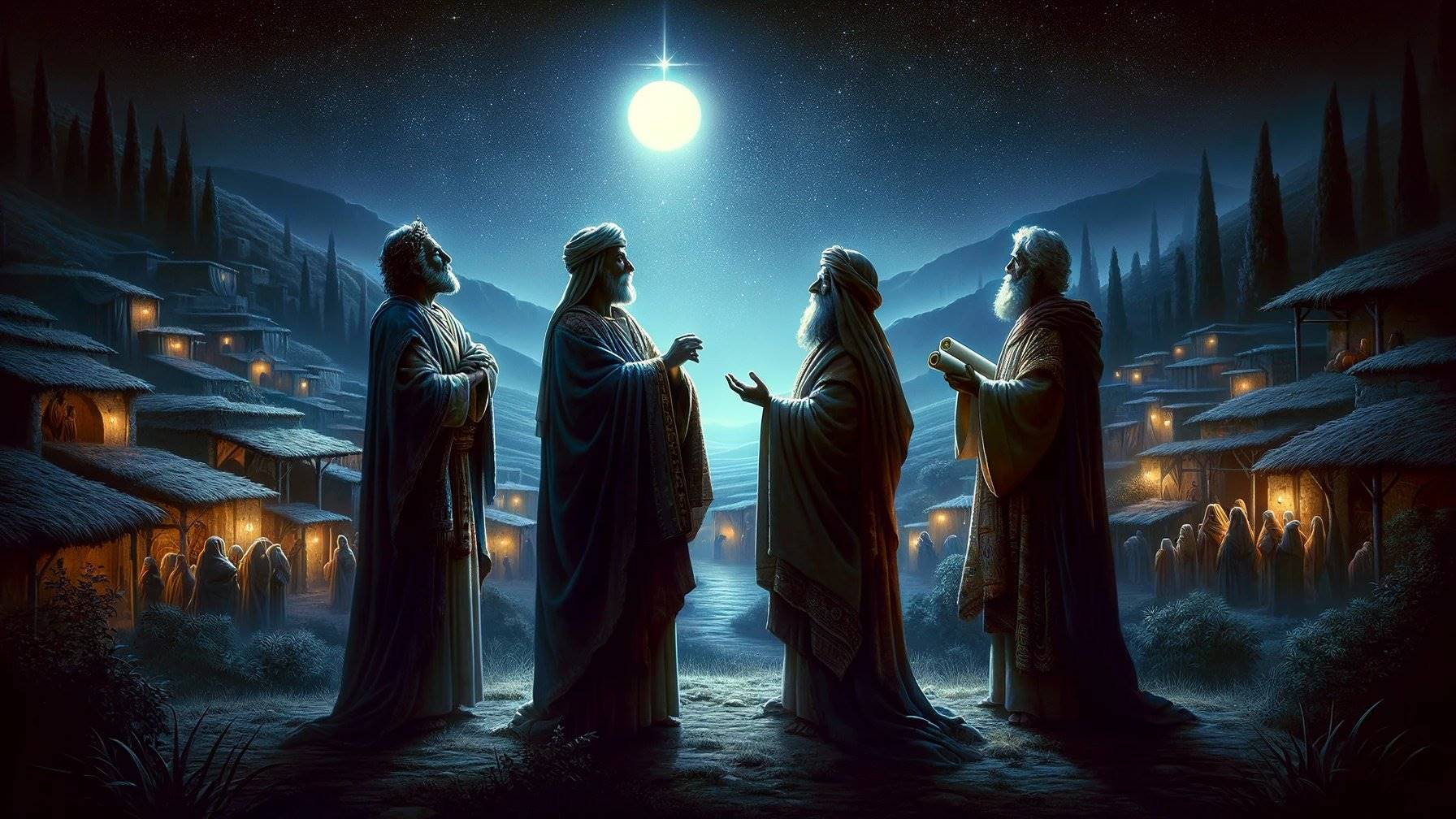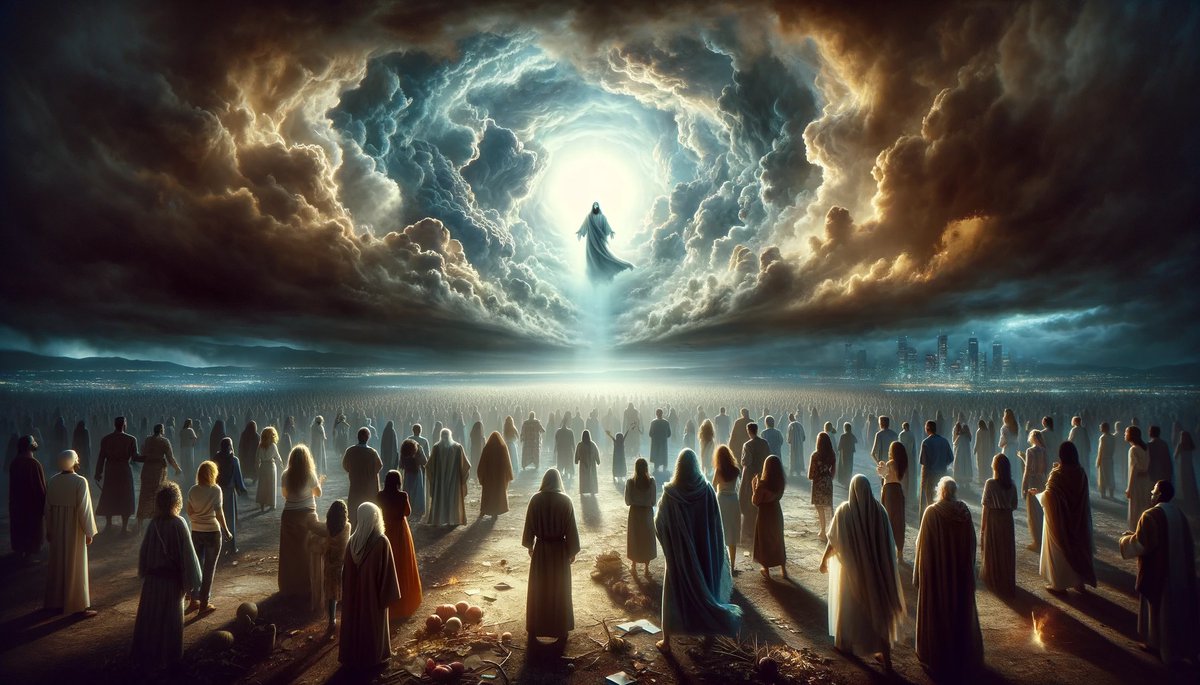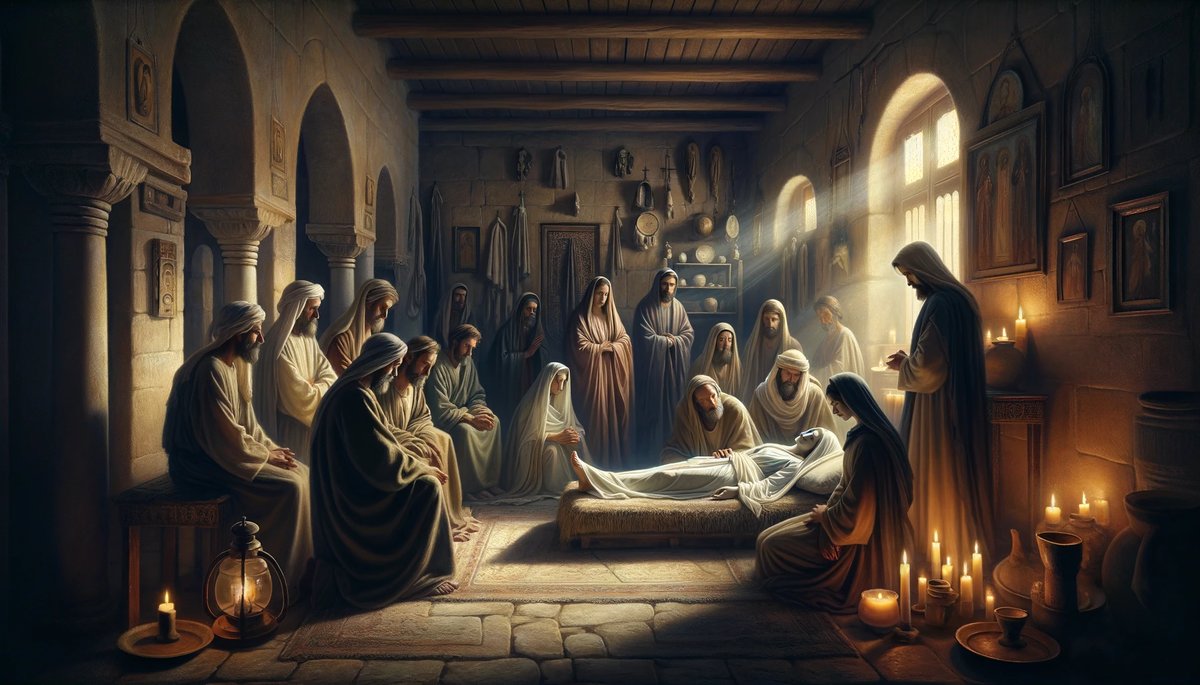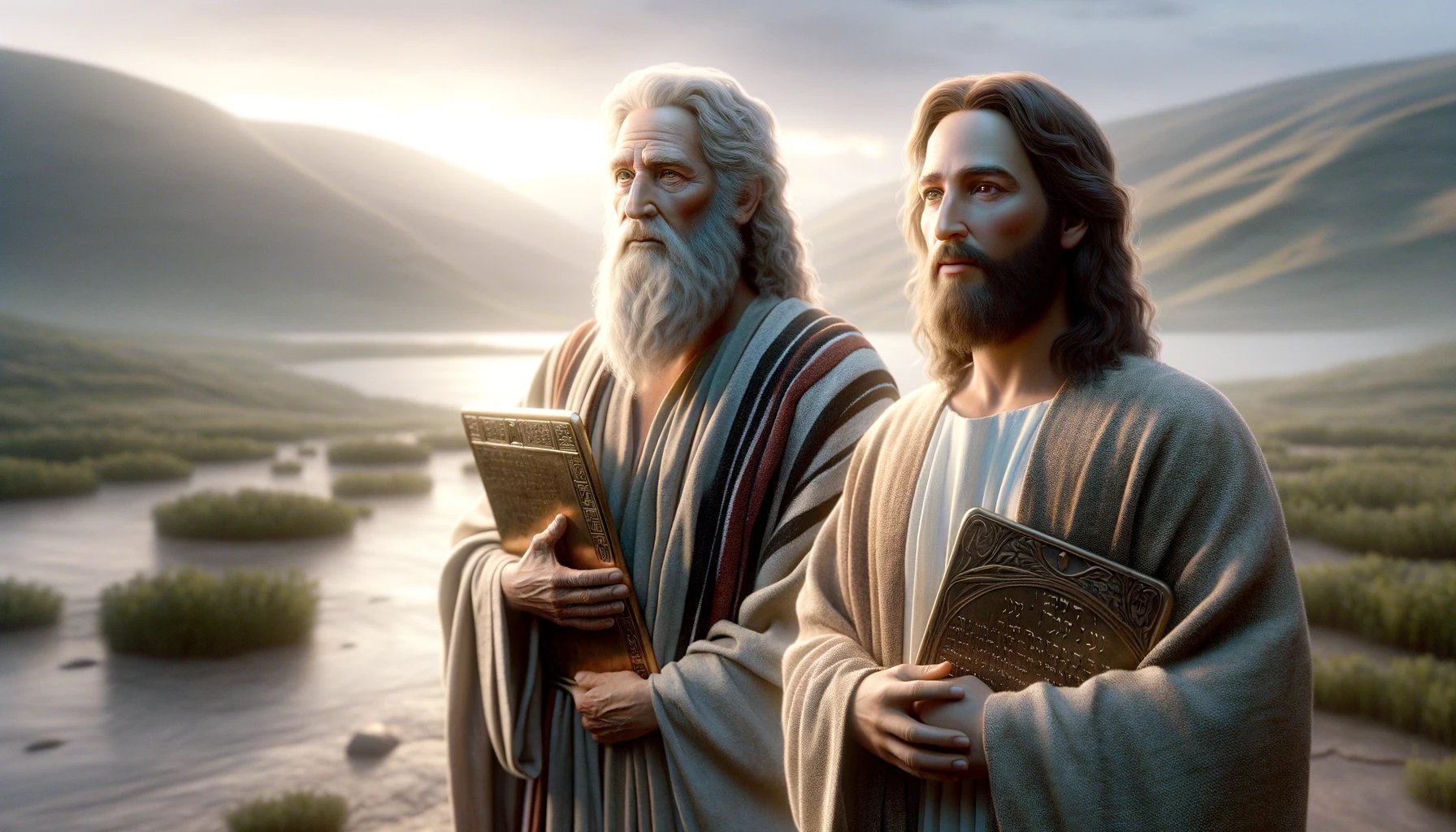Home>Christian Videos>Bible Stories>What Happened After The Birth Of Jesus Christ
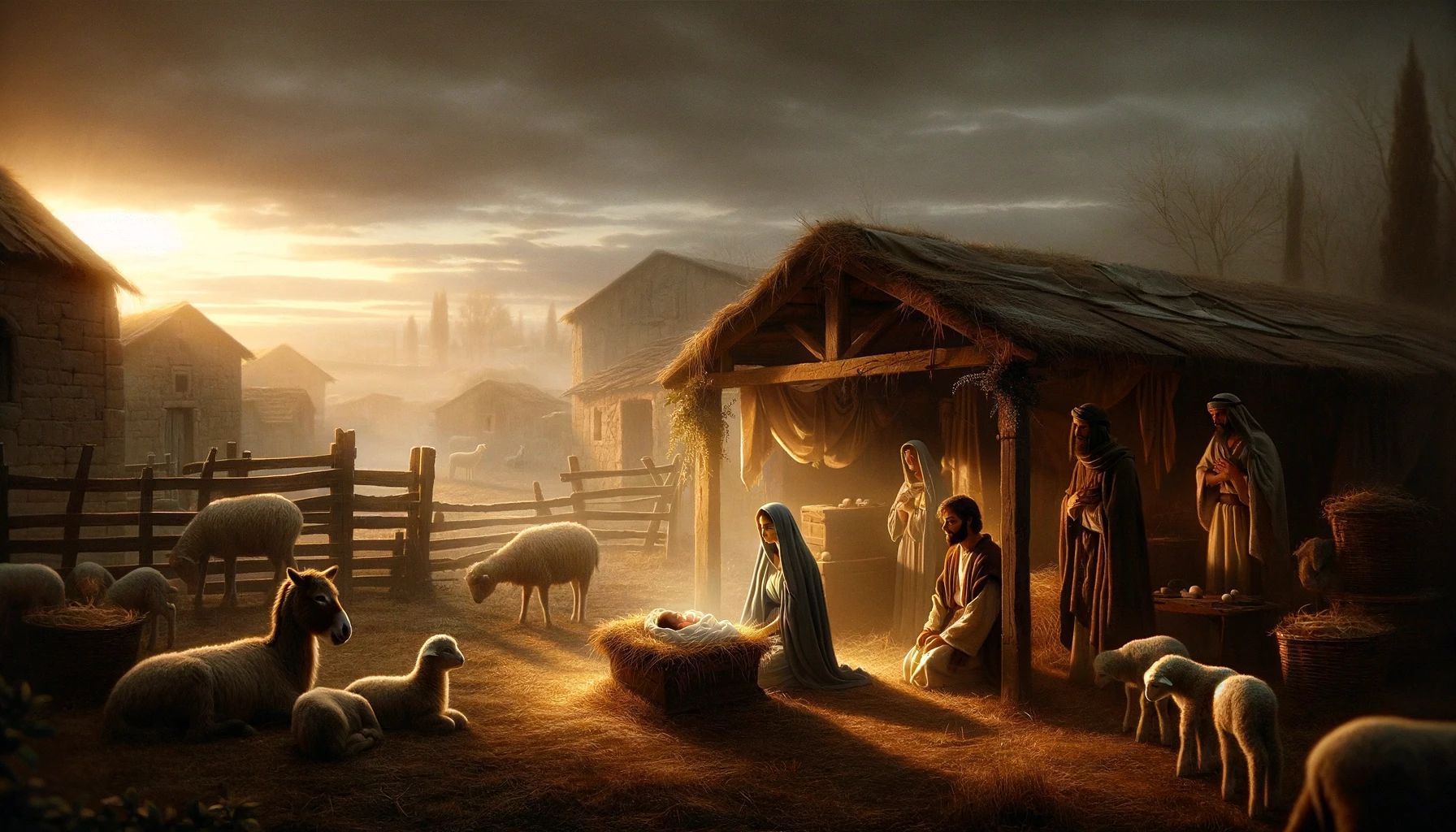

Bible Stories
What Happened After The Birth Of Jesus Christ
Published: February 29, 2024
Ericka Andersen, an editor at Christian.net, expertly merges digital strategy with content creation, focusing on faith and societal issues. Her communication skills enhance the platform's engaging narratives, fostering meaningful dialogue on belief's impact on society.
Discover the events that unfolded after the birth of Jesus Christ in this captivating Bible story. Explore the impact of His arrival and the significance of this momentous occasion. Uncover the timeless lessons and teachings within this powerful narrative.
(Many of the links in this article redirect to a specific reviewed product. Your purchase of these products through affiliate links helps to generate commission for Christian.net, at no extra cost. Learn more)
Table of Contents
The Announcement of the Birth
The announcement of the birth of Jesus Christ is a pivotal moment in the Christian faith. According to the Gospel of Luke, the angel Gabriel appeared to a young woman named Mary, who was betrothed to Joseph. The angel informed Mary that she would conceive a child by the Holy Spirit and that the child would be the Son of God. This miraculous announcement set in motion the events that would ultimately lead to the birth of Jesus Christ.
- The angel Gabriel appeared to Mary to announce the miraculous conception of Jesus.
- Mary was initially troubled by the angel's greeting but was reassured by Gabriel.
- The angel informed Mary that she had found favor with God and would conceive a son through the Holy Spirit.
- Mary, in humble obedience, accepted the role appointed to her by God.
This divine announcement marked the beginning of the fulfillment of ancient prophecies and the unfolding of God's redemptive plan for humanity. It was a moment of profound significance, as it signaled the imminent arrival of the long-awaited Messiah.
The Journey to Bethlehem
-
The Decree of Caesar Augustus: The journey to Bethlehem was necessitated by a decree from Caesar Augustus, the Roman emperor, requiring all the people to be registered. Joseph, being of the house and lineage of David, had to travel from Nazareth to Bethlehem, the city of David, to be enrolled with Mary, who was pledged to be married to him.
-
The Arduous Journey: The couple embarked on a long and arduous journey from Nazareth to Bethlehem, a distance of approximately 90 miles. This journey would have been particularly challenging for Mary, who was heavily pregnant at the time. The difficult terrain and the physical strain of the journey added to the significance of the events that were about to unfold.
-
Fulfillment of Prophecy: The journey to Bethlehem also fulfilled the prophecy concerning the birthplace of the Messiah. The prophet Micah had foretold that the Messiah would be born in Bethlehem, and through the circumstances surrounding the census and the journey of Joseph and Mary, this prophecy was brought to fruition.
-
Divine Providence: Despite the challenges they faced, Joseph and Mary's journey to Bethlehem was ultimately guided by divine providence. It was part of God's sovereign plan to fulfill the prophecies and bring about the birth of Jesus in the appointed place and time.
-
Symbolism of the Journey: The physical journey to Bethlehem also carries symbolic significance in the Christian faith. It represents the humble and obedient submission of Joseph and Mary to the will of God, as well as the fulfillment of God's promises through the unfolding events of history.
-
Arrival in Bethlehem: Ultimately, Joseph and Mary arrived in Bethlehem, where the stage was set for the miraculous birth of Jesus Christ, the Savior of the world. This humble journey to a small town would become eternally significant, as it marked the beginning of the fulfillment of God's redemptive plan for humanity.
The Birth of Jesus
The birth of Jesus took place in Bethlehem, a town that held great significance as the birthplace of King David, the renowned ancestor of the Messiah. Mary, having journeyed with Joseph to Bethlehem, gave birth to her firstborn son in humble surroundings, as there was no room for them in the inn. The circumstances of Jesus' birth, in a manger meant for animals, underscored the humility and simplicity that characterized the arrival of the long-awaited Savior. Despite the lack of grandeur, the birth of Jesus was a moment of profound significance, marking the incarnation of the Son of God in human form. It fulfilled the ancient prophecies and ushered in a new era of hope and redemption for all humanity.
The birth of Jesus in Bethlehem also fulfilled the prophecy of Micah, who had foretold that the Messiah would come from this small Judean town. The fulfillment of this prophecy underscored the divine orchestration of events surrounding the birth of Jesus, emphasizing the meticulous fulfillment of God's plan through the annals of history. The humble circumstances of Jesus' birth served as a powerful symbol of God's choice to reveal His glory through the lowly and the meek, rather than through worldly pomp and splendor.
The arrival of the shepherds, who were informed by a host of angels about the birth of the Savior, further emphasized the extraordinary nature of Jesus' birth. The shepherds, who were among the first to receive the news, hastened to see the newborn child and spread the word concerning the remarkable events that had taken place. Their presence at the manger, along with the heavenly proclamation of the angels, highlighted the universal significance of Jesus' birth, as it was announced to those from all walks of life.
The birth of Jesus in Bethlehem marked the dawn of a new era, as the long-awaited Messiah entered the world to bring salvation and reconciliation. It was a moment that reverberated throughout history, shaping the course of human destiny and offering the promise of redemption to all who would believe. The birth of Jesus Christ remains a central and cherished tenet of the Christian faith, symbolizing the embodiment of God's love and grace in the person of His Son, who would ultimately offer Himself as a sacrifice for the sins of the world.
The Visit of the Shepherds
The visit of the shepherds to the manger where Jesus lay encapsulates the profound impact of the Savior's birth on those who were privileged to witness it. As the shepherds watched over their flocks by night, they were suddenly enveloped by the radiant presence of an angel, who brought them tidings of great joy. The angel announced the birth of the long-awaited Messiah in the city of David and directed the shepherds to find the newborn child, wrapped in swaddling clothes and lying in a manger.
The appearance of the angel was accompanied by a multitude of heavenly hosts, praising God and proclaiming peace on earth to those on whom His favor rests. This celestial proclamation underscored the extraordinary nature of Jesus' birth and the universal significance of His arrival. The shepherds, undoubtedly awestruck by this heavenly spectacle, wasted no time in seeking out the child, eager to witness the fulfillment of the angel's message.
Upon finding Mary, Joseph, and the infant Jesus, the shepherds marveled at the sight before them. They recounted the extraordinary events that had led them to the humble manger and shared the angel's message with the astonished parents. The shepherds' visit served as a poignant reminder that the arrival of the Messiah was not confined to the grandeur of palaces or the acclaim of the powerful, but was intended for all people, regardless of their station in life.
The shepherds' response to the news of Jesus' birth was one of reverent awe and joyful proclamation. Having been entrusted with the privilege of witnessing this momentous event, they departed, glorifying and praising God for all they had seen and heard. Their encounter with the infant Savior left an indelible impression on their hearts, and they became the first heralds of the good news of Jesus' birth, spreading the word throughout the land.
The visit of the shepherds to the manger symbolizes the inclusivity of God's redemptive plan and the profound impact of Jesus' birth on those who recognize Him as the long-awaited Messiah. Their humble yet exuberant response to the angelic announcement exemplifies the joy and wonder that permeated the atmosphere surrounding the arrival of the Savior. The shepherds' visit serves as a timeless reminder that the message of Christ's birth is one of hope, joy, and salvation for all who would receive it with open hearts.
The Visit of the Magi
The visit of the Magi, also known as the Wise Men or the Three Kings, is a significant event following the birth of Jesus. According to the Gospel of Matthew, the Magi, who were astrologers and scholars from the East, observed a remarkable star signifying the birth of a king. Guided by the appearance of this celestial phenomenon, they embarked on a journey to pay homage to the newborn King of the Jews.
The arrival of the Magi in Jerusalem stirred great interest and concern, as they inquired about the whereabouts of the child who had been born King of the Jews. Their quest to find and worship the infant Jesus resonated with the anticipation of the fulfillment of ancient prophecies and the recognition of the Messiah's arrival.
Upon learning of the prophecy that the Messiah would be born in Bethlehem, the Magi continued their journey, following the guidance of the star. Their arrival in Bethlehem and their discovery of the young child, along with his mother Mary, filled them with immense joy and reverence. They presented gifts of gold, frankincense, and myrrh, symbolizing the child's royal status, divinity, and sacrificial destiny.
The visit of the Magi holds profound significance, as it represents the acknowledgment of Jesus' universal kingship and the inclusion of the Gentiles in the redemptive plan of God. The homage paid by the Magi to the infant Jesus transcended cultural and religious boundaries, signifying the recognition of the Savior's authority and the fulfillment of God's promise to bless all nations through the seed of Abraham.
The gifts brought by the Magi carry symbolic meaning, reflecting the multifaceted nature of Jesus' identity and mission. Gold symbolizes his kingship and sovereignty, while frankincense represents his role as a divine mediator between God and humanity. Myrrh, with its association with burial and sacrifice, foreshadows the redemptive purpose for which Jesus would ultimately offer himself.
The visit of the Magi underscores the global significance of Jesus' birth and the fulfillment of God's plan to reconcile all people to Himself through the person of His Son. Their journey and homage serve as a testament to the far-reaching impact of Jesus' arrival and the profound implications of his identity as the long-awaited Messiah. The inclusion of the Magi in the narrative of Jesus' birth foreshadows the extension of God's grace and salvation to all who would seek and worship Him, irrespective of their cultural or social standing.
The Escape to Egypt
The escape to Egypt is a pivotal episode in the narrative of Jesus' early life. Following the visit of the Magi, Joseph received a divine warning in a dream, prompting him to take the child Jesus and his mother Mary and flee to Egypt. This flight was necessitated by the imminent threat posed by King Herod, who sought to destroy the infant Jesus after learning of the Magi's quest to worship the newborn King of the Jews.
The escape to Egypt underscores the providential care and protection of God over the life of Jesus, ensuring the fulfillment of His redemptive mission. By seeking refuge in Egypt, Joseph obediently carried out his role as the guardian of the Messiah, safeguarding Jesus from the murderous intentions of Herod. This flight to Egypt also echoes the historical parallel of Israel's sojourn in Egypt during the time of Moses, further emphasizing the divine orchestration of events in fulfillment of prophecy.
The escape to Egypt highlights the vulnerability of the infant Jesus and the subsequent fulfillment of the prophecy that He would be called out of Egypt, signifying the parallelism with the nation of Israel. This event also serves as a poignant reminder of the hardships endured by countless individuals who have sought refuge from persecution and danger, resonating with the universal human experience of seeking sanctuary and protection in times of adversity.
The flight to Egypt and the subsequent return to the land of Israel underscore the overarching theme of God's faithfulness in preserving and guiding His chosen people. The escape to Egypt represents a pivotal juncture in the early life of Jesus, demonstrating the fulfillment of ancient prophecies and the divine protection afforded to the Savior in the face of imminent danger. This event also serves as a precursor to the broader themes of exile, deliverance, and the ultimate triumph of God's redemptive plan through the life, death, and resurrection of Jesus Christ.
The Return to Nazareth
The return to Nazareth marked the culmination of the early events surrounding the birth and infancy of Jesus. Following the death of King Herod, Joseph, Mary, and Jesus returned from Egypt to the land of Israel. However, due to concerns about Herod's son Archelaus, who ruled over Judea, they settled in the region of Galilee, specifically in the town of Nazareth. This return to Nazareth fulfilled the prophecy that Jesus would be called a Nazarene, establishing a significant connection between the Savior's upbringing and the fulfillment of ancient prophecies.
The return to Nazareth also signified the beginning of Jesus' formative years, as he grew and matured in wisdom, stature, and favor with God and man. The town of Nazareth, though seemingly insignificant in the eyes of the world, held profound significance in the unfolding of God's redemptive plan. It was in Nazareth that Jesus would spend much of his early life, learning the trade of carpentry from Joseph and participating in the rhythms of daily life within the community.
The return to Nazareth also underscored the humble and unassuming nature of Jesus' upbringing, as he lived among ordinary people and experienced the realities of human existence. This period of obscurity and preparation laid the foundation for Jesus' future ministry, as he grew in understanding and prepared to fulfill his divine mission. The town of Nazareth, with its close-knit community and unassuming surroundings, provided the backdrop for the development of the young Jesus, shaping his character and identity in profound ways.
The return to Nazareth serves as a poignant reminder that God often works through the ordinary and the seemingly insignificant to accomplish His extraordinary purposes. The unassuming town of Nazareth became the backdrop for the upbringing of the Savior of the world, emphasizing the paradoxical nature of God's redemptive plan. Through the quiet years spent in Nazareth, Jesus was being prepared for the profound impact he would have on the world, as he grew in wisdom, grace, and understanding of his divine calling.
The return to Nazareth represents a pivotal transition in the life of Jesus, marking the beginning of his earthly ministry and the fulfillment of God's promises. It also serves as a testament to the faithfulness of God in orchestrating the events of history to bring about the fulfillment of His redemptive plan. In the unassuming town of Nazareth, the stage was set for the revelation of God's glory through the life and ministry of Jesus Christ, the long-awaited Messiah.


